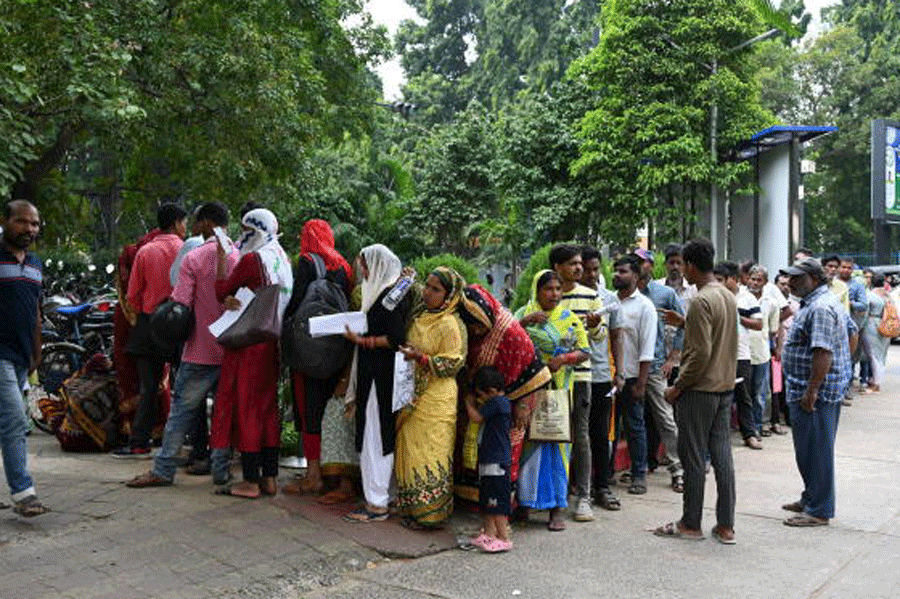Serpentine queues have been seen in front of the Reserve Bank of India (RBI) in Bhubaneswar for about a week now, with people waiting for hours to exchange Rs 2,000 notes that have gone out of circulation.
Many of those queuing up come with 10 pieces of Rs 2,000 notes — the maximum number that can be exchanged at the counter by producing Aadhaar cards, according to the RBI guidelines. Some of them said they had queued up on behalf of others and were paid Rs 300.
Smelling a scam, the economic offence wing (EOW) of the Odisha crime branch on Wednesday reached the RBI, questioned the people in the queue and took their photographs. Enforcement Directorate (ED) officials also reached the RBI.
An elderly women, Sumita Nayak, 61, who hails from the Saliasahi slum, said: “My Babu, in whose factory I work as a labourer, has given me the notes and asked me to change it in the bank. I will get money for it.”
The deadline to deposit and exchange the Rs 2,000 notes in banks ended on October 7, but it can still be exchanged at the RBI.
Subodha Das, who has a small business unit in the market building area, told The Telegraph: “I have no time to come and stand in a queue. I asked my staff to do the
job. People are changing the laws whimsically and we are paying the price for it. Why has there been a change of law always? It affects the lower middle and middle-class people the most.”
Sources said the Odisha branch of the RBI has received more than Rs 2 crore in Rs 2,000 currency notes in the last two days.
An RBI official said: “We have asked people they can put the money in one box and leave their account numbers, we can deposit that amount within one or two days. But most people prefer instant cash in exchange for Rs 2,000 notes.”
RBI’s regional director for Odisha, Sarada Prasanna Mohanty, told reporters: “We are here to serve the people. Whoever comes with Rs 2,000 denomination notes to exchange and has valid documents, we will certainly exchange it. We are not here to ask where he or she got the money. It’s the job of investigating agencies to investigate the source of money.”











